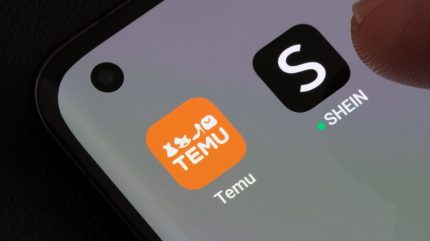
Senator Marco Rubio’s (R-FL), whose Uyghur Forced Labor Prevention Act (UFLPA) became law in 2021, sent a letter to DHS Secretary Alejandro Mayorkas asking him to investigate Shein and Temu and add them to the UFLPA entity list if they are found to be in violation of current law.
Rubio alleges there is “evidence both companies are exporting goods to the United States made with Uyghur slave labour.”
In his letter he says he is encouraged the DHS outlined a strategy to combat illicit textile trade earlier this month but says more than two years after UFLPA was signed into law, the Forced Labor Enforcement Task Force, which is led by US Customs and Border Protection (CBP), has yet to add a single entity to the exporter list under UFLPA’s Section 2(d)(2)(B)(iv).
“Americans, and victims of the CCP’s forced labour system, cannot afford any more delay.
“UFLPA empowers CBP to block the importation of goods that originate in the Xinjiang Uyghur Autonomous Region (XUAR) or are made under “labour transfer” programs that send Uyghurs and other persecuted groups to other parts of China. The law tackles human rights abuses and also protects American firms from unfair competition. However, UFLPA will not make a difference if it is not implemented.
“It is past time for the Forced Labor Enforcement Task Force to begin adding entities to the UFLPA exporter list. Private firms and journalists have unearthed compelling evidence that both Shein and Temu are facilitating the entry of goods made with Uyghur forced labour.”
His letter continues to claim Shein has overtaken competitors such as Zara and H&M as the dominant fast fashion retailer in the US market and alleges Shein’s Hong Kong-based parent company, Zoetop, has been fined by the State of New York for mishandling users’ personal information.
Rubio further goes on to claim Temu facilitates e-commerce transactions between Americans and tens of thousands of China-based sellers and alleges the e-commerce site has deep ties to the the Chinese Communist Party (CCP), uses malware to spy on its app’s users, and facilitates intellectual property violations.
“In January 2024, Temu was the most downloaded app in the US and boasted 51 million monthly active users, a 300 percent increase from 2023. Shein and Temu have exploded in popularity due to their ultra-low prices, which are a result of a combination of intellectual property theft, trade exploitation, strong backing from the CCP, and, allegedly, the use of forced labour,” he wrote.
Rubio further took aim at the companies “exploitation of the de minimis loophole”.
“On top of the problems with customs scrutiny on the back end, Temu is doing nothing to prevent the sale of goods made with forced labour on the front end. Temu lacks even a basic compliance or auditing system to ensure its products are compliant with UFLPA and has an unenforced code of conduct that prohibits the use of forced labour. In fact, the company has admitted that it “does not expressly prohibit third-party sellers from selling products based on their origin in the Xinjiang Autonomous Region.”
“Given the blatant exploitation of trade loopholes that Shein and Temu regularly demonstrate, and the high probability these companies have facilitated the importation of goods made with forced labour, I urge you to investigate these companies and add them to the exporter list…should they be in violation of federal law,” Rubio wrote.
A spokesperson for Shein told Just Style the company has a “zero-tolerance policy for forced labour.”
“We take visibility across our entire supply chain seriously, and we are committed to respecting human rights. To comply with U.S. law, we require our contract manufacturers to only source cotton from approved regions.”
Temu did not return request for comment when approached by Just Style.



